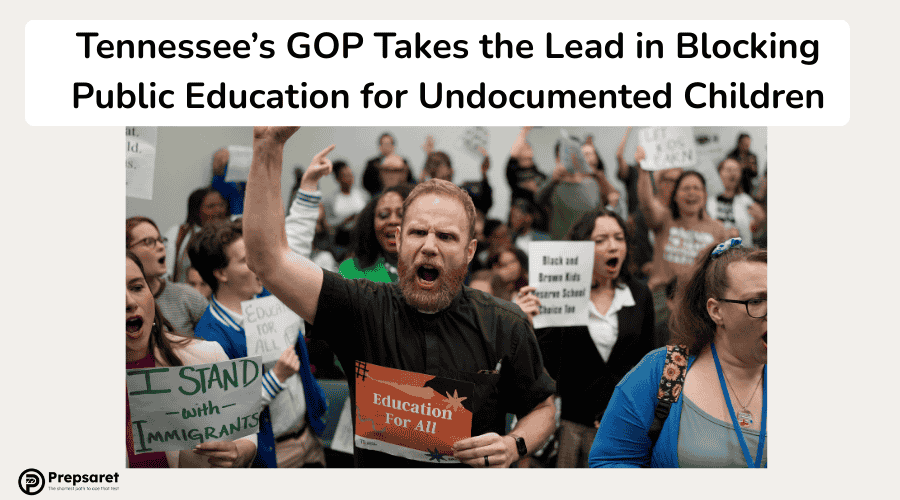Key Takeaways:
- Tennessee lawmakers are advancing legislation challenging Plyler v. Doe, the Supreme Court case that guarantees public education for undocumented children.
- The bill proposes requiring legal residency proof for K-12 enrollment, potentially excluding undocumented students or requiring them to pay tuition.
- Opponents argue the move is discriminatory and could harm children, while supporters cite fiscal concerns and hope to push the issue back to the Supreme Court.
- Emotional student testimonies highlight fears about the bill’s human impact.
NASHVILLE, Tenn. — Tennessee is moving forward with legislation that could redefine who has access to public education in the state, reigniting a legal and political debate that dates back more than four decades.
At the heart of the controversy is a Republican-backed proposal that challenges Plyler v. Doe, a 1982 U.S. Supreme Court ruling that barred states from denying free public education to undocumented children.
The proposed law, recently passed by the GOP-led state Senate, would require families to provide proof of legal residence to enroll children in public K-12 schools. Schools could then either deny entry or impose tuition fees on students who fail to meet documentation requirements.
A version in the House stops short of mandating documentation but would allow schools to verify immigration status voluntarily. Before reaching Governor Bill Lee’s desk, both versions must be reconciled.
Find Out: How to Prepare for the GED| K-12 Schools
Conservative Push to Overturn Precedent
The bill has emerged amid a broader conservative campaign to dismantle protections established by Plyler v. Doe. Groups like The Heritage Foundation and Republican officials argue that educating undocumented students imposes an undue fiscal burden on state resources.
“Undocumented illegal aliens may pay sales and property tax,” said Sen. Bo Watson, the bill’s sponsor. “But one doesn’t know if those payments come close to offsetting the additional costs.”
Opponents, however, dispute this rationale. Thomas Saenz, president of the Mexican American Legal Defense and Educational Fund, which argued the original Plyler case, dismissed the cost arguments as “recycled” and unbalanced. “They never weigh that against the benefit of taxes being paid by these kids and their parents,” he noted.
Legal scholars like Brett Geier of Western Michigan University suggest the bill is part of a broader strategy aimed at re-litigating old precedents in front of a Supreme Court that has shown a willingness to reverse long-standing decisions.
Human Impact at the Forefront
For many Tennessee families, especially immigrant communities, the bill has sparked deep anxiety. Students have been vocal in their opposition, testifying in emotional appeals before lawmakers.
“I am the son of immigrant parents who have shown me to respect and value everyone,” sixth-grader Damian Felipe Jimenez told legislators. “The right to an education should not be taken away from us because of our immigration status.”
Twelve-year-old Silvestre Correa Del Canto, whose family moved from Chile to Nashville when he was three, connected the bill to historical injustices. “I feel like we’ve worked a lot to be connected again,” he said, referencing his school’s past as a segregated institution. “And I feel like that would be just going steps back.”
Although previous state-level attempts to challenge Plyler—in California (1994) and Alabama (2011)—were ultimately struck down, Tennessee’s proposal represents the most aggressive modern test of the precedent.
Legal experts expect that, if enacted, the law would be quickly challenged in court, potentially setting the stage for a landmark Supreme Court review.
Also in the news:

